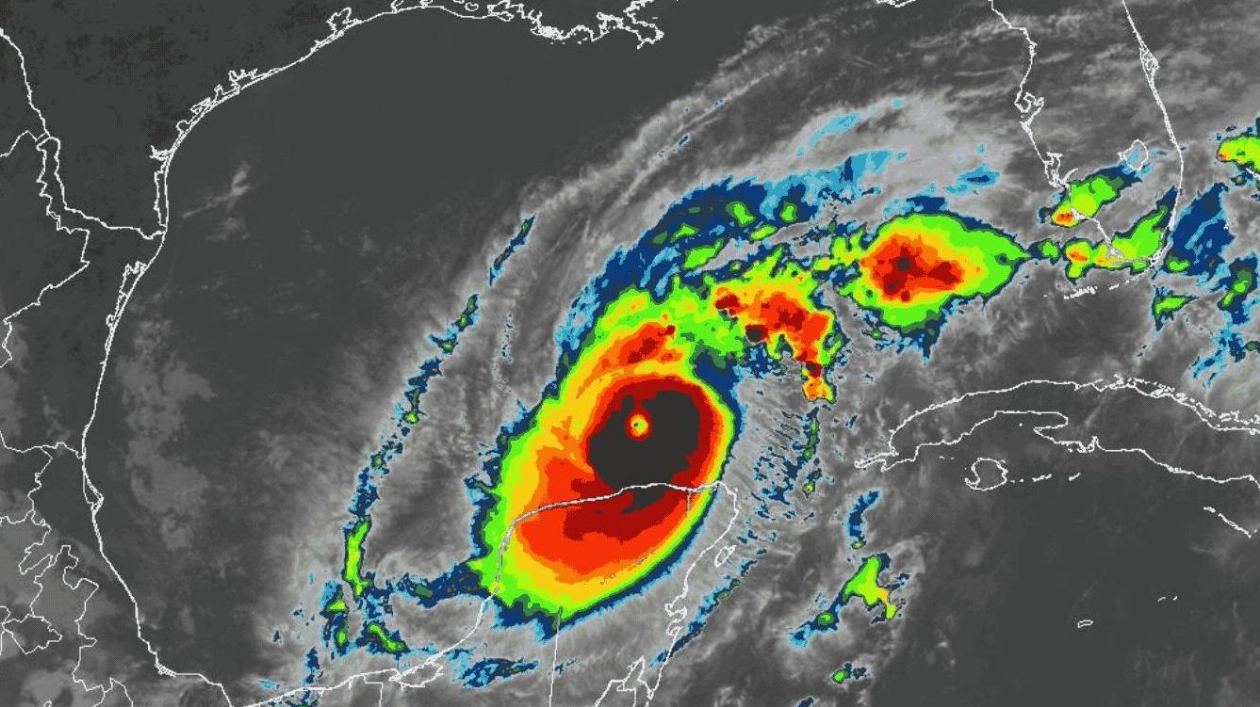Meteorologists have been captivated by the rapid transformation of Hurricane Milton, which has intensified dramatically over the unusually warm waters of the Gulf of Mexico, becoming one of the most powerful Atlantic storms ever recorded. In just 20 hours on October 7, Hurricane Milton escalated from a Category 1 to a devastating Category 5 storm, with wind speeds reaching 290 kilometers per hour (180 miles per hour). The storm is anticipated to make landfall on the west coast of Florida either late on October 9 or early on October 10 as a major Category 3 or 4 hurricane, bringing catastrophic storm surges and hurricane-force winds to coastal areas still recovering from Hurricane Helene's impact two weeks prior (SN: 10/1/24).
Science News is gathering reader inquiries about navigating our planet's evolving climate. What are your questions regarding extreme heat and its role in triggering extreme weather events?
The rapid intensification of both storms was driven by the Gulf's exceptionally warm waters. Tropical storms in development can absorb heat from warm seawater, lifting humid air upwards where it condenses, thereby releasing heat into the storm's core. As the storm progresses, it continues to draw in more water and heat, causing the spiraling winds to accelerate. Milton's particularly explosive growth rate might also be attributed to its relatively smaller size compared to Helene (SN: 9/27/24).
Two recent reports highlight that human-induced climate change has made these warm Gulf waters hundreds of times more probable. An analysis by the international World Weather Attribution (WWA) initiative, released on October 9, examined the influence of climate change on Hurricane Helene's intensification and its heavy rainfall as it moved inland across the Southern Appalachian Mountains. The WWA researchers found that sea surface temperatures in the Gulf, along the storm's path, were on average about 1.26 degrees Celsius (2.3 degrees Fahrenheit) warmer than they would have been in a world without climate change. In other words, the unusually high temperatures along Helene's path were made 200 to 500 times more likely due to climate change.
Helene caused rainfall of up to 50 to 75 centimeters (20 to 30 inches) in parts of Appalachia, leading to severe flooding and numerous fatalities across the U.S. Southeast. The researchers determined that this rainfall was approximately 10 percent heavier than it would have been without human-induced climate change. Climate Central, based in Princeton, N.J., contributed to the WWA's sea surface temperature analysis for Helene. In a separate alert issued on October 7, Climate Central reported that elevated sea surface temperatures in the southwestern Gulf of Mexico were also responsible for Hurricane Milton's 'explosive' intensification. The analysis revealed that the sea surface temperatures in the Gulf were made 400 to 800 times more likely over the past two weeks due to human-induced climate change.
This estimate might be conservative, as noted by the group. Typically, Climate Central uses daily sea surface temperature data from the U.S. National Centers for Environmental Information (NCEI). However, Hurricane Helene's impact temporarily disrupted the NCEI data repository in Asheville, N.C. Therefore, for the Milton analysis, Climate Central utilized sea surface temperature data from the European Union's Copernicus Marine Service. These data tend to be slightly cooler, on average, than the NCEI data, according to Orlando, Fla.-based climate scientist Daniel Gilford of Climate Central.
"One of the key messages from both reports is that climate change is here, happening now," Gilford states. "It has influenced both of these storms. We know it is responsible for these events reaching the extent they did. This is something significant. We should pay attention."
Questions or comments on this article? E-mail us at feedback@sciencenews.org | Reprints FAQ
B. Clarke et al. Climate change key driver of catastrophic impacts of Hurricane Helene that devastated both coastal and inland communities. World Weather Attribution. Published online October 9, 2024.
Climate Central. Analysis: Ocean temperatures warmed by climate change provided fuel for Hurricane Milton's extreme rapid intensification. Alert published online October 7, 2024.
Carolyn Gramling is the earth & climate writer. She holds bachelor’s degrees in geology and European history and a Ph.D. in marine geochemistry from MIT and the Woods Hole Oceanographic Institution.
We are at a critical juncture, and supporting climate journalism is more crucial than ever. Science News and our parent organization, the Society for Science, need your assistance to enhance environmental literacy and ensure that our response to climate change is grounded in scientific understanding.
Please subscribe to Science News and add $16 to expand science literacy and comprehension.






